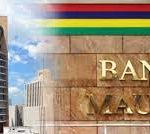In April, Ethiopia’s government signed a deal with three companies to create a national database for student and teacher IDs using a digital decentralised identity. The idea is to provide IDs for the country’s 5 million students spread out across its 3500 schools. The digitized identity will help students in primary, secondary, and university track their education careers and future progression.
The deal made ripples in the crypto community as it stands out as the largest of its kind entered into by a government. It also showcased a unique opportunity for blockchain to be used to effect socio-economic change. The deal has been touted as a great way to ensure financial inclusion in Ethiopia and Africa as it creates digital identities of persons.
The companies involved are Cardano (owned by a Swiss non-profit), IOHK (Japanese software company), and Emurgo, (develop and maintain the blockchain).
Many are familiar with Bitcoin since its launch in 2019, however, the underlying blockchain technology is often overlooked. The technology offers unique opportunities that can improve the lives of people and businesses. The open-source software not only enables end users to freely and legally create products and services, but it also remains decentralized.



